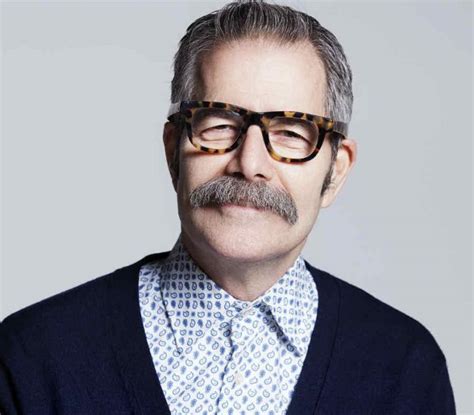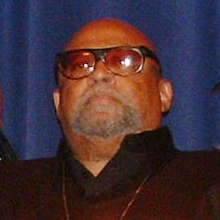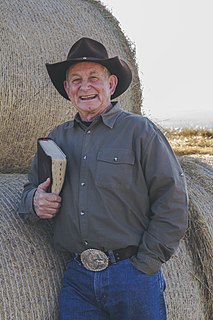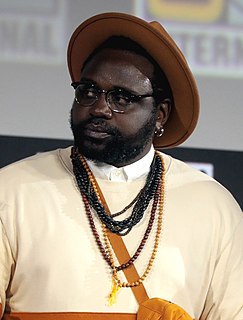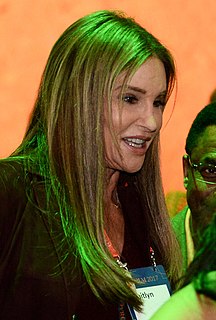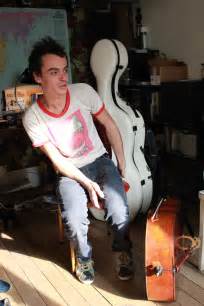A Quote by Jesmyn Ward
I came to the realization that I had failed in some respects because I had been more of a benevolent narrator than the world I saw reflected around me, and in the lives of the people in my community, and in my family. There was no benevolent God sparing us pain and loss and grief and struggle. If I was going to continue to write about the place where I am from, and the kind of people who live in my community and who are in my family, I owed it to them to be honest with what our lives are like.
Quote Topics
About
Am
Around
Because
Been
Benevolent
Came
Community
Continue
Failed
Family
God
Going
Grief
Had
Here I Am
Honest
Kind
Like
Live
Lives
Loss
Me
More
My Family
Narrator
Our
Our Lives
Owed
Pain
Pain And Loss
People
Place
Realization
Reflected
Respects
Saw
Some
Struggle
Than
Them
To Be Honest
Us
World
Write
Related Quotes
These events are swirling around them. In the white community, people felt like they had no control over their neighborhoods, their destiny. In the black community, centuries of government and economic forces were pushing on them. I went in with a kind of arrogance, maybe, that came from living in a very intellectual family, and I left knowing that there was a lot about the way people lived that I didn't know about.
Twitter was an alternative community for me. A different kind of community. I knew I was making people angry. But it didn't matter, they weren't my community. But the longer I was on Twitter and the more I came to know these people, to like and respect them, the more I could see the empathy and grief and sorrow they were expressing.
In the family, life is brought not only to our doorstep, but into our kitchens, bedrooms, and dens. In the family, life is happening all around us, and it begs to be questioned, evaluated, interpreted, and discussed. There is no more consistent, pregnant, dynamic forum for instruction about life than the family, because that is exactly what God designed the family to be, a learning community.
The core problem isn’t the fact that we’re lukewarm, halfhearted, or stagnant Christians. The crux of it all is why we are this way, and it is because we have an inaccurate view of God. We see Him as a benevolent Being who is satisfied when people manage to fit Him into their lives in some small way. We forget that God never had an identity crisis. He knows that He’s great and deserves to be the center of our lives.
Peace is not just the absence of war, it is the active presence of a capacity for love and compassion, and reciprocity. It is an awareness that our lives are not to be lived simply for ourselves through expressing our individuality, but we confirm the purpose of our lives through the work of expressing our shared sense of community in a purposeful and practical way; to sustain our own lives we sustain the lives of others - in family, in a community of neighborhoods called a city, and in a community of nations called the world.
I'm grateful to see my work flourish in my lifetime. Many of the great people in our history were not able to see how much their work, suffering and sacrifices enriched our lives and pushed our struggle forward. But I've been blessed to see my work begin in a family home, spread around the world and be embraced by millions of African people throughout the world African community.
When we talk about something like student loans, what we should be talking about is the fact that every American wants their kids to do better than we have done. If we can get that, the other thing we'd really like is for our kids to be able to come home and raise their kids in the community where we raised them. What unites all of us, no matter where you live in the country, is we want our family to be safe, we want the next generation in our family to be more successful than us, and we would like our family to be close together.
I believe that family is closer to God's heart than anything else, the support system he has given us to build us up in faith, and to support us when we falter. If we want our family lives to conform to God's will, Jesus must be our priority, our focal point, in our home as well as in our ministries.
That doesn't mean that it's always easy to live together: home can be the hardest place to live a Christian life. That's were people see us when we're tired and our defences are down.
Acting really started for me because I was in a house full of adults. They never shielded their lives from me. They were adults going through this world doing what they had to do. I used to like to watch them and imitate them. They all have their own distinct personalities; even though they're family, we couldn't be more different people.
We are spirits. That bodies should be lent us while they afford us pleasure, assist us in acquiring knowledge or in doing good to our fellow-creatures, is a kind of benevolent act of God. When they become unfit for these purposes and afford us pain instead of pleasure, instead of an aid become an encumbrance and answer none of these intentions for which they were given, it is equally kind and benevolent that a way is provided by which we get rid of them. Death is that way.
The man who lives in a small community lives in a much larger world. He knows much more of the fierce variety and uncompromising divergences of men…In a large community, we can choose our companions. In a small community, our companions are chosen for us. Thus in all extensive and highly civilized society groups come into existence founded upon sympathy, and shut out the real world more sharply than the gates of a monastery. There is nothing really narrow about the clan; the thing which is really narrow is the clique.
I haven't really thought about family in my work. I simply play with people I meet. They mostly become friends. There is something like a great community of people around me, but this does only exist in my mind. All these people are my family, they are not a family. They mostly don't know each other.
The strike and its outcome had an enormous impact on the system of education and on our lives as well. The strike began as a response to the college's refusal to hire Professor Nathan Hare [the so-called father of black studies], and certainly unified the college around issues of justice. These issues were reflected in many communities: the Asian American community, Hispanic community, Native American community.
Grief is real because loss is real. Each grief has its own imprint, as distinctive and as unique as the person we lost. The pain of loss is so intense, so heartbreaking, because in loving we deeply connect with another human being, and grief is the reflection of the connection that has been lost. We think we want to avoid the grief, but really it is the pain of the loss we want to avoid. Grief is the healing process that ultimately brings us comfort in our pain.



